10 Free Guitar Repair Tools!
Overview – Whether you’re interested in guitar building or guitar repair, it’s important to understand that there are many expensive tools that need to purchased. In this post, I’d like to discuss some items which are very useful, that you won’t need to buy. So if you’re just starting out, or even if you’ve been at it for a while like I have, I hope that these ideas will be useful to you. I’m going to be sharing with you 10 free guitar repair tools and materials that I use as part of my guitar repair shop in Binghamton, NY, and these are things that I use either every day, or on a regular basis.
If you’d prefer to watch rather than read, I put out a video discussing this on my YouTube channel which you can check out below. Otherwise, let’s get into it!
#1 – Food Containers – I’ve collected a variety of these food containers over time, and instead of throwing them away, what I like to do is clean them out and put them to good use. I use these small glass jars to store liquids that usually only come in larger containers. I like to use Simple Green as a general purpose cleaner around the shop, hydrogen peroxide for whitening bone nuts, and on rare occasions I use acetone as a solvent.
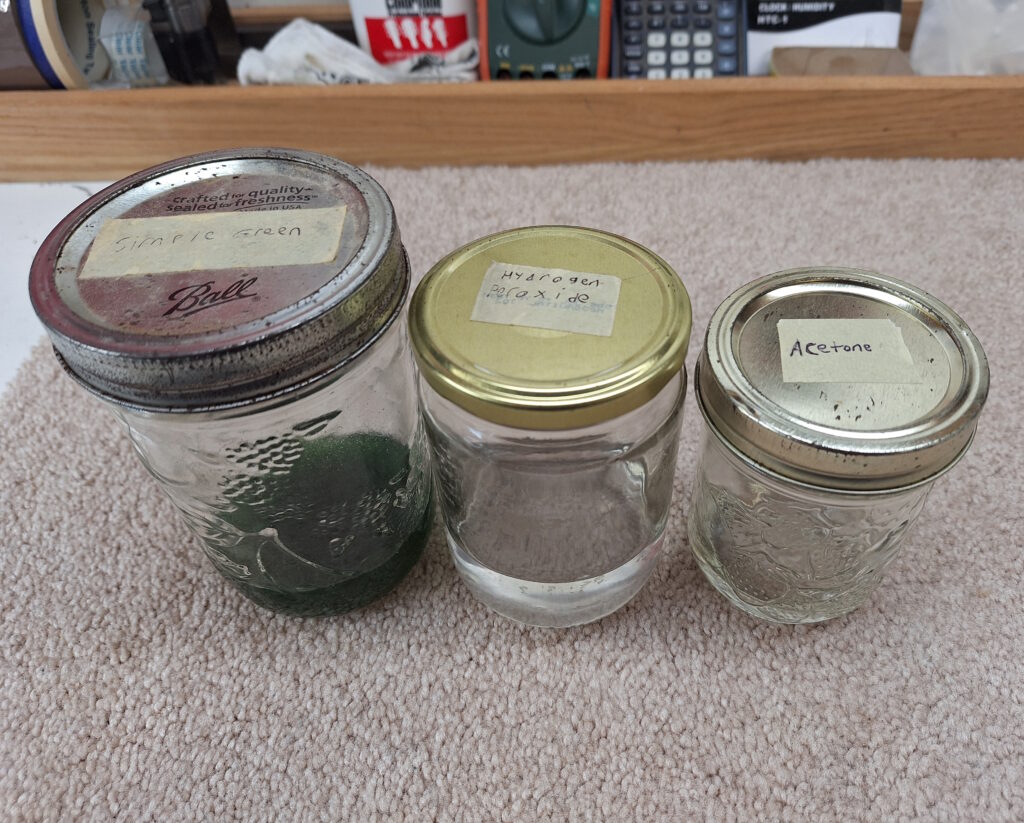
I also like to use food containers as a way to keep track of small guitar parts. I find that they can usually hold anything that comes off of a guitar, and I use them on every one that I work on. I like that they have a lid in case I need to move them around the shop, this way if it gets knocked on the floor, the parts are less likely to scatter.
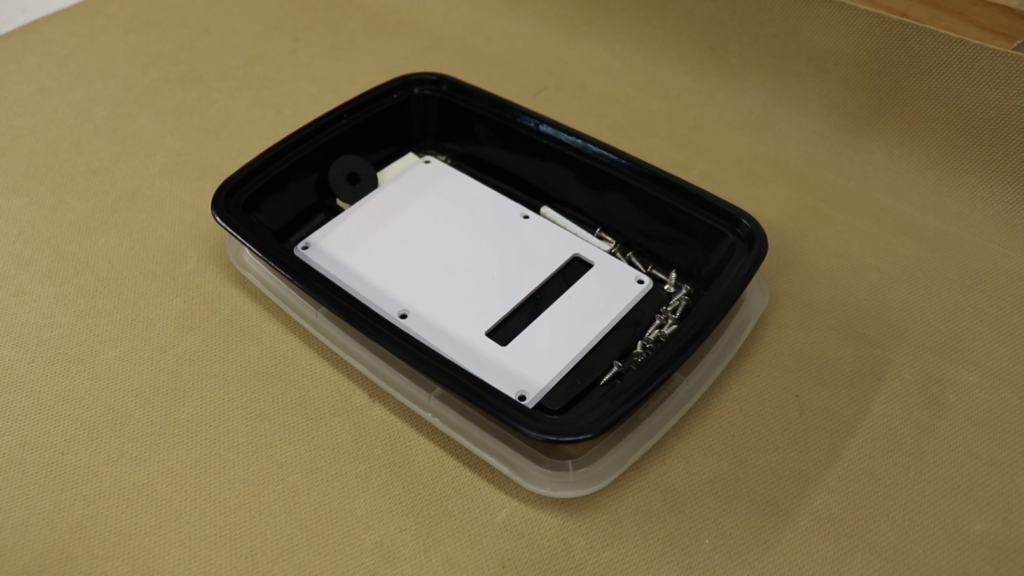
Some other uses for food containers that I’ve found are these peanut butter jars. I saved a bunch of them over time and use them for storing screws. I ended up labeling them and if I ever need to make jigs, fixtures, or some wood shop furniture, I have everything labeled and organized.
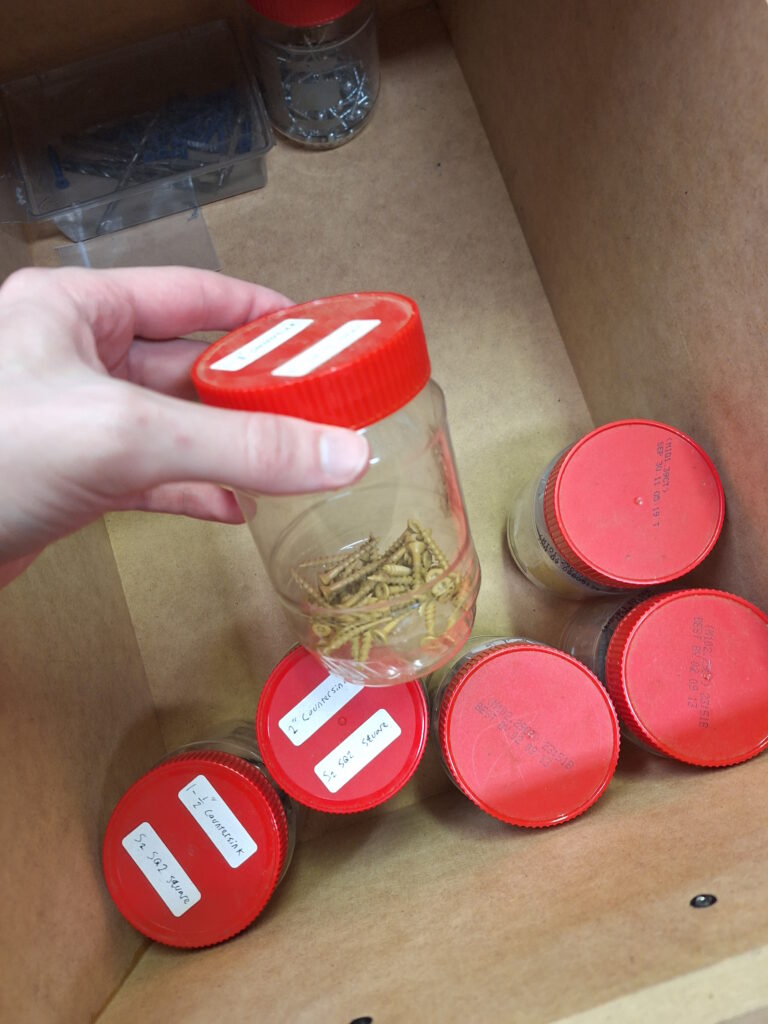
I also use yogurt cups which are very handy for mixing stains, or as a container for wood glues, if for example I need to do a headstock repair. The nice thing about these is that once the glue dries, you can usually peel it away and reuse these over and over again.
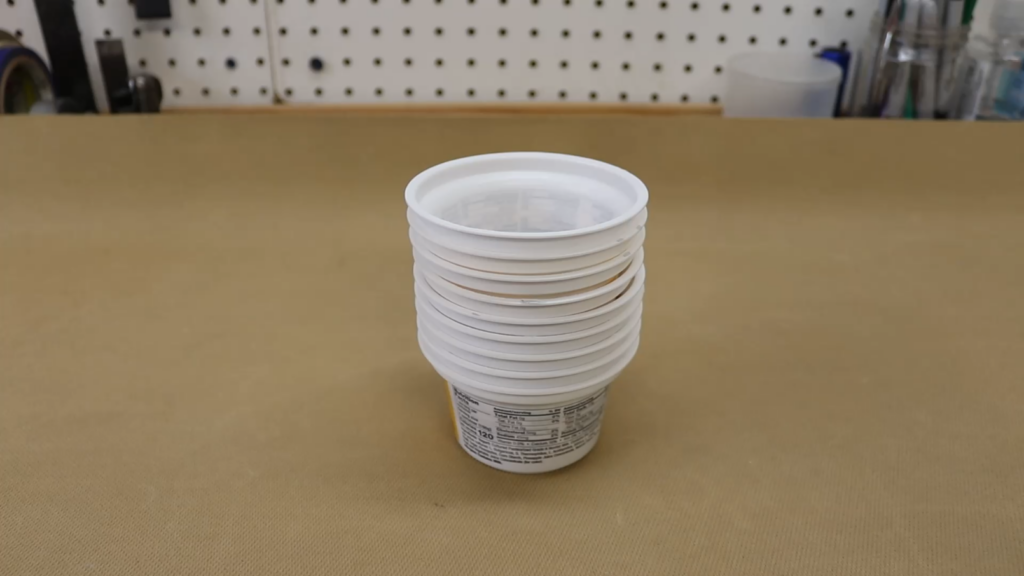
#2 – Guitar Picks – I often order from vendors and occasionally they’ll include free guitar picks. I like to have them close at hand, that way when I’m working on a customer’s guitar I can get a feel for how it’s playing. I have a whole bunch of them that were either given to me as gifts, or were included with a purchase I made. I’ve never needed to buy guitar picks for my shop, I even give them to my customers in case they ever need some extras.
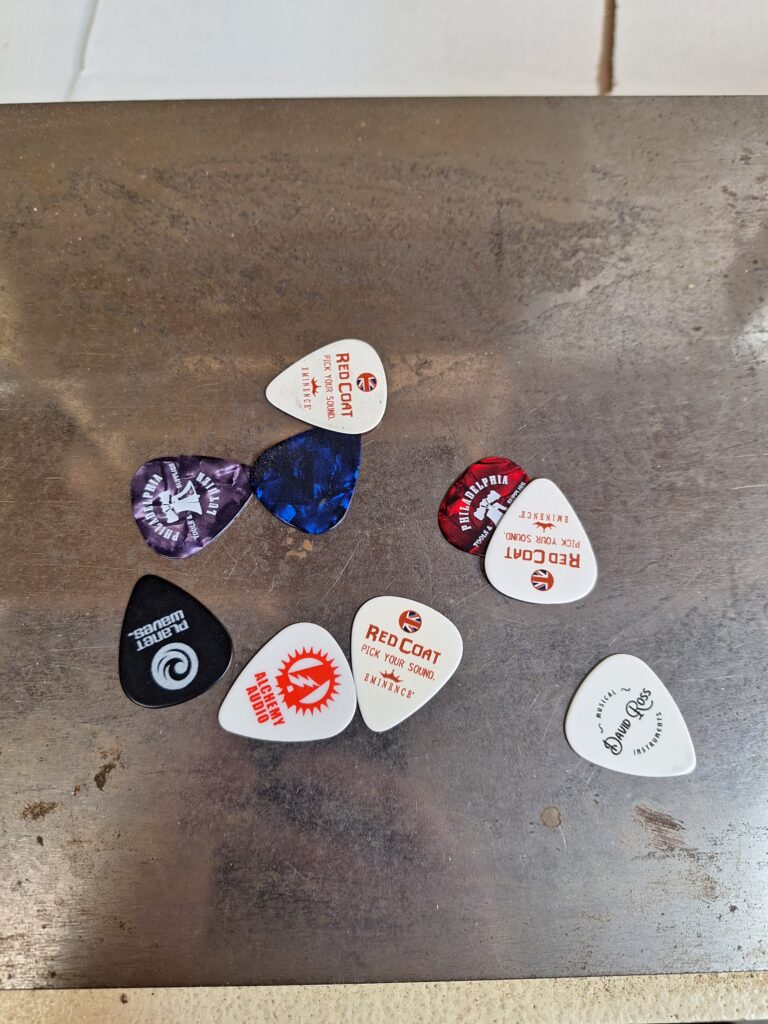
Relating back to food containers, I’ve found that tuna fish cans are great for holding guitar picks. I find that they’re a nice size and shape, and can hold as many as you need to.
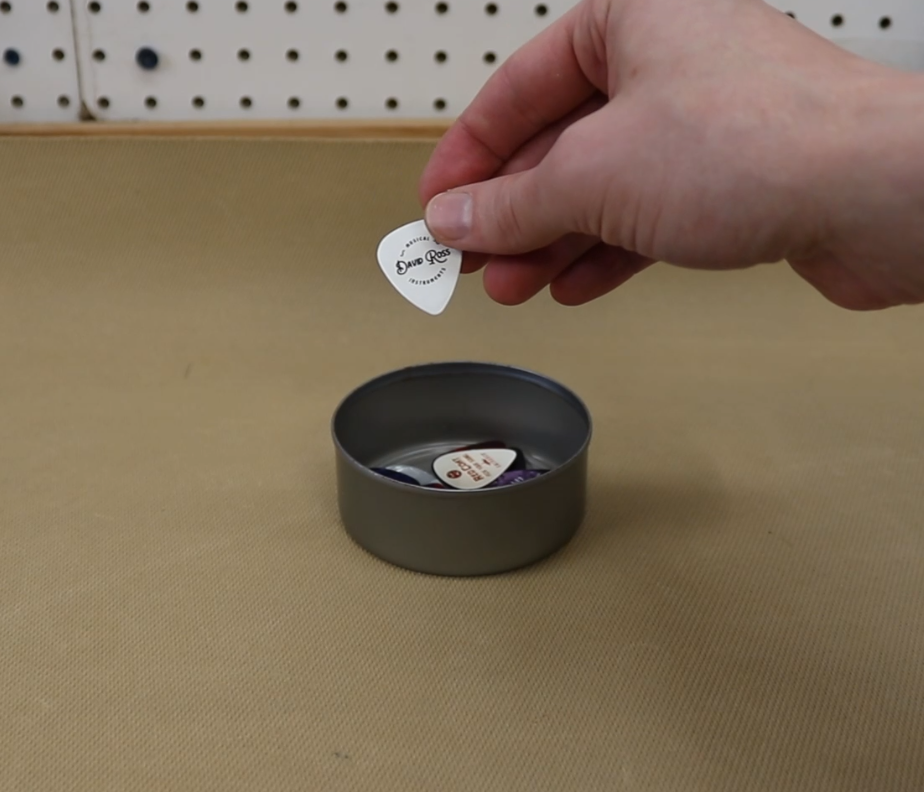
#3 – Hardware – Occasionally I’ll work on guitars that are missing hardware, like a missing screw from a pickguard, a missing washer from an output jack, or in the picture below, a missing screw from the Bigsby vibrato on a 1972 Gibson SG Deluxe.
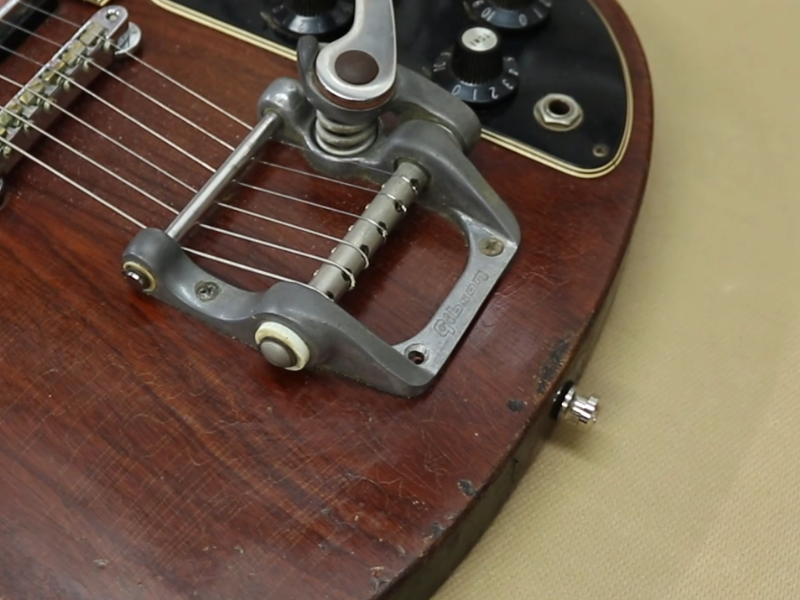
One thing I like to do is save any screws, nuts, or washers that I come across and keep them for this occasion. This can help me out by not needing to place a special order for any hardware that’s missing, and it also saves the customer money. Another thing to consider is that guitars will often include parts which vary between metric and imperial measurements. You may have a truss rod that accepts a 3/8” allen wrench, while the tuners accept a 10mm socket. Some guitars will also use their own proprietary hardware which use uncommon measurements, so for these reasons, it’s worth keeping miscellaneous hardware on hand. All of this I didn’t pay for, I just accumulated it over time, and you will too if you get into this type of work.
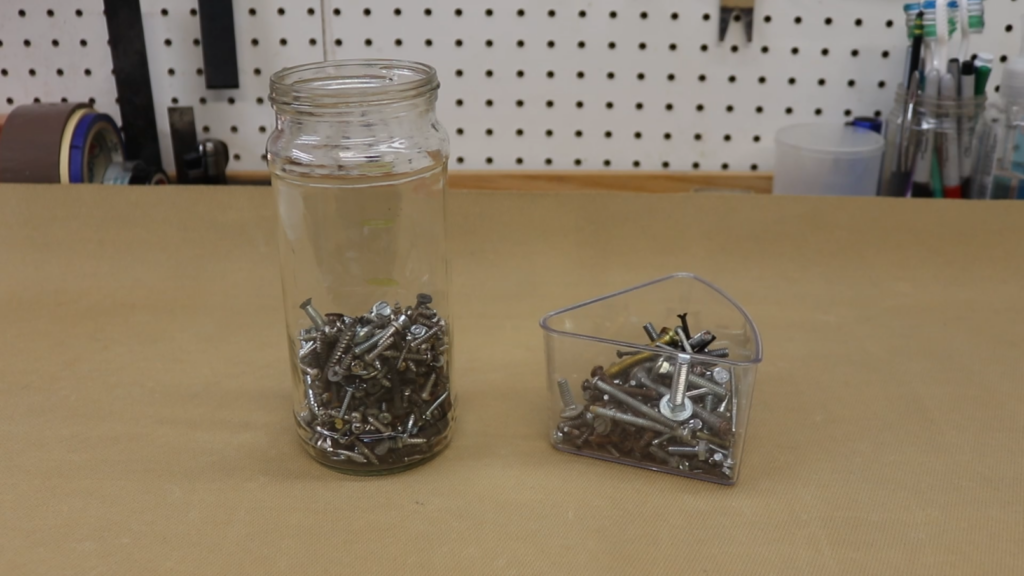
#4 – Screwdrivers – I bought a set of screwdrivers back when I was first getting into guitar building and repair back around 2008, and this set has served me well over the years. One thing that I’ve come to learn however is that these don’t always cover every base.
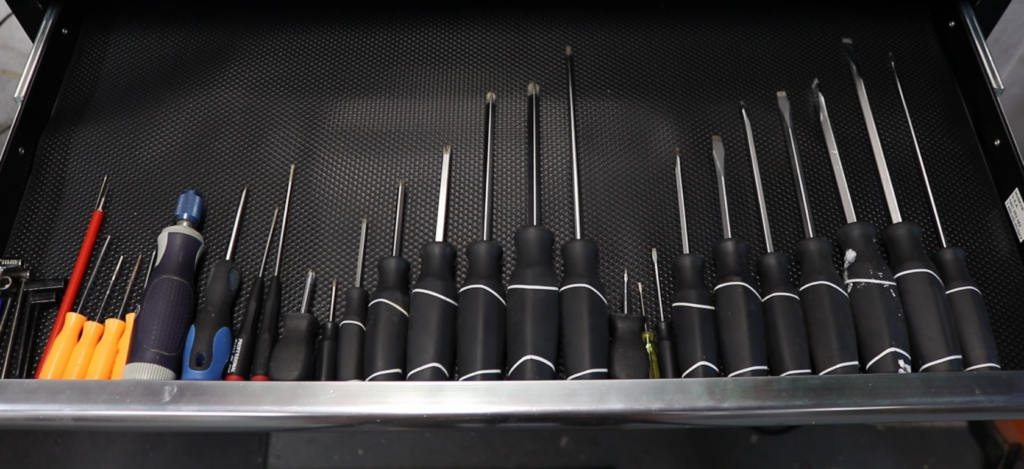
One example for this that I can give you is the screws on the back of guitar tuners. Part of the reason why is because the taper of the tip of these screwdrivers don’t always fully match certain screw types. Add into this the fact that these screws are commonly made brass which is a very soft material, and that these screws tend to get corroded or stripped over time.
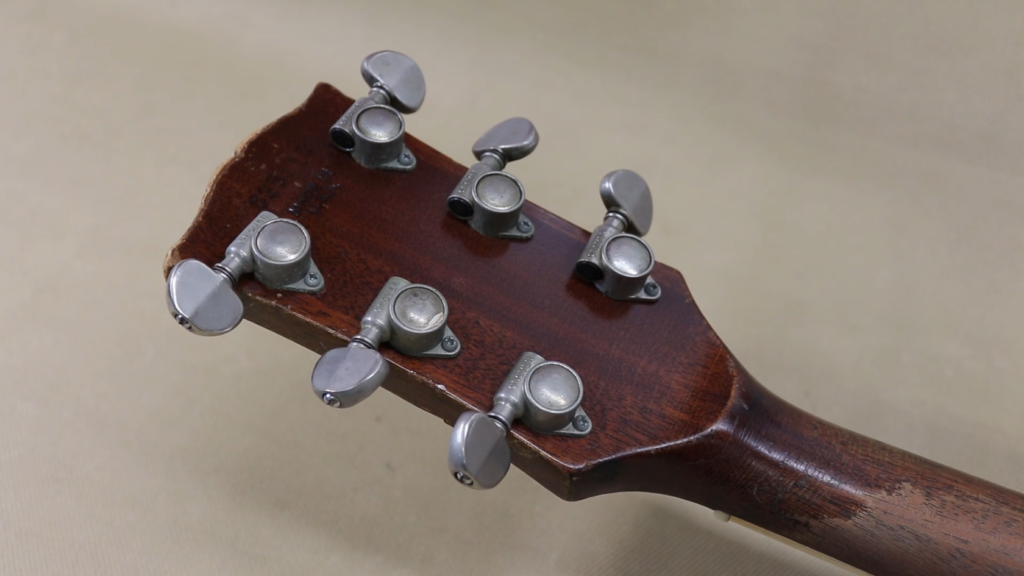
For this reason, I like to keep some miscellaneous screwdrivers on hand for these situations. I have a whole box of screwdrivers and I have no idea where most of them came from. You may find that the screwdriver that’s been sitting in a drawer unused for the past 10 years is exactly the one you need for the occasion.
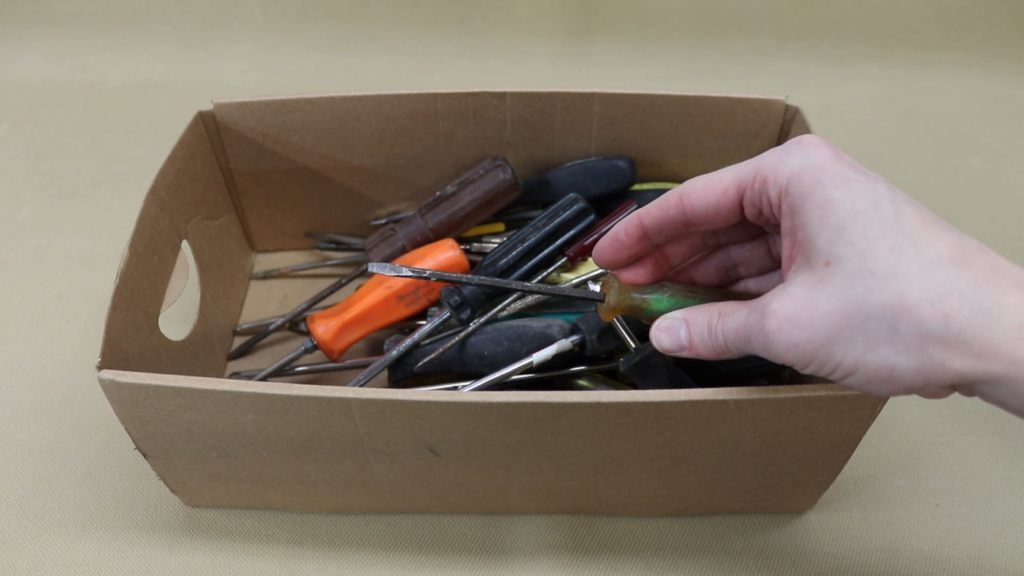
#5 – Shipping Supplies – When working on guitars, I constantly get materials in from vendors, and as a result of this, I get a ton of shipping supplies coming into my shop. I usually spend some time maybe once a month breaking these down and recycling them, but I don’t get rid of everything. There are some very useful sized boxes for guitar parts, for example, these ones that I cut up and use in my tool chest.
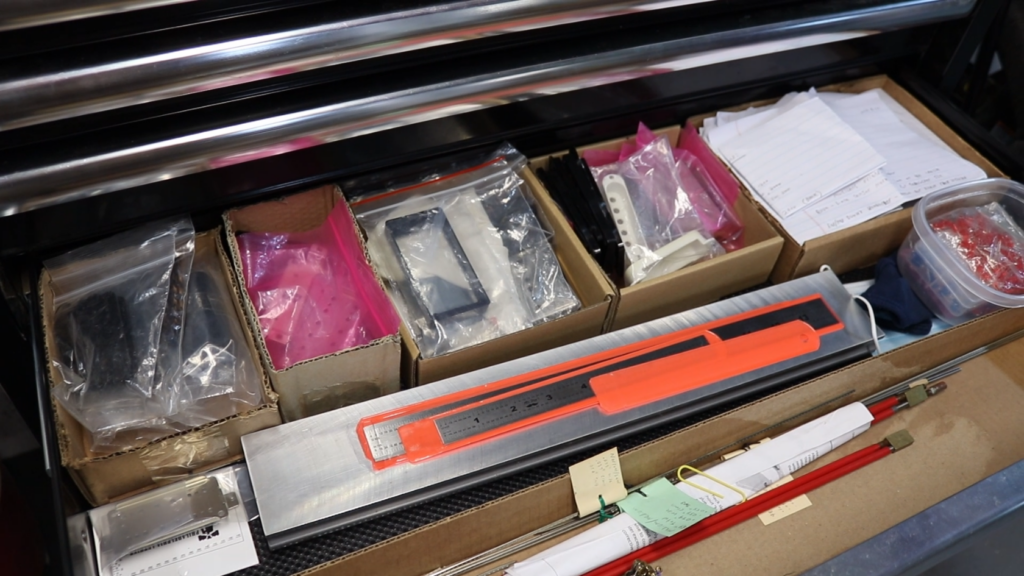
Another aspect of shipping supplies that I’ll mention is plastic bags. In addition to doing guitar repair, I also build and sell my own line of guitar effects pedals, and as a result I get a lot of small parts that come in these small bags. I like to keep these around for guitar repair purposes so that if there are spare parts that come off a customer’s guitar, I can give them something without just throwing loose hardware in their guitar case.
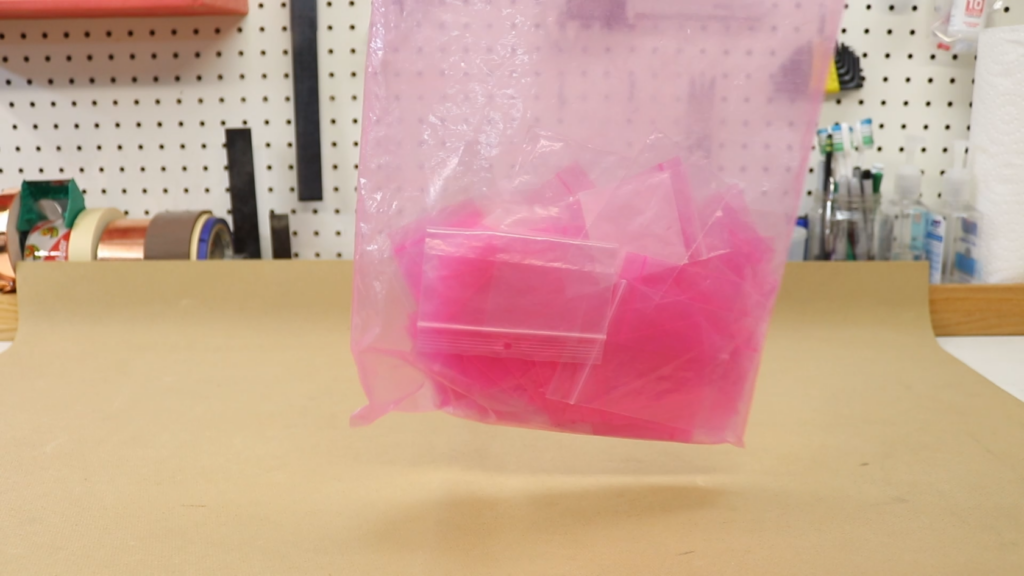
#6 – Scrap materials – When people think of scrap material in this line of work, the first thing that probably comes to mind are wood scraps, and for good reason. I’ve built a lot of custom furniture for my shop and as a result, there’s always material left over. Additionally, people often will throw away beat up wooden furniture, and some of it is quite nice. It may be worth picking out of the trash and processing it for your own purposes. Wood scraps are so useful to me that I’ve made a section of my shop that’s dedicated to keeping these. Whether its plywood, MDF, hardwoods, or construction lumber, it’s good to save this if you need to make something specific for a job that you’re doing. One thing to make sure of is keeping this all somewhat organized. It’s easy to just keep collecting and get overwhelmed by it all.
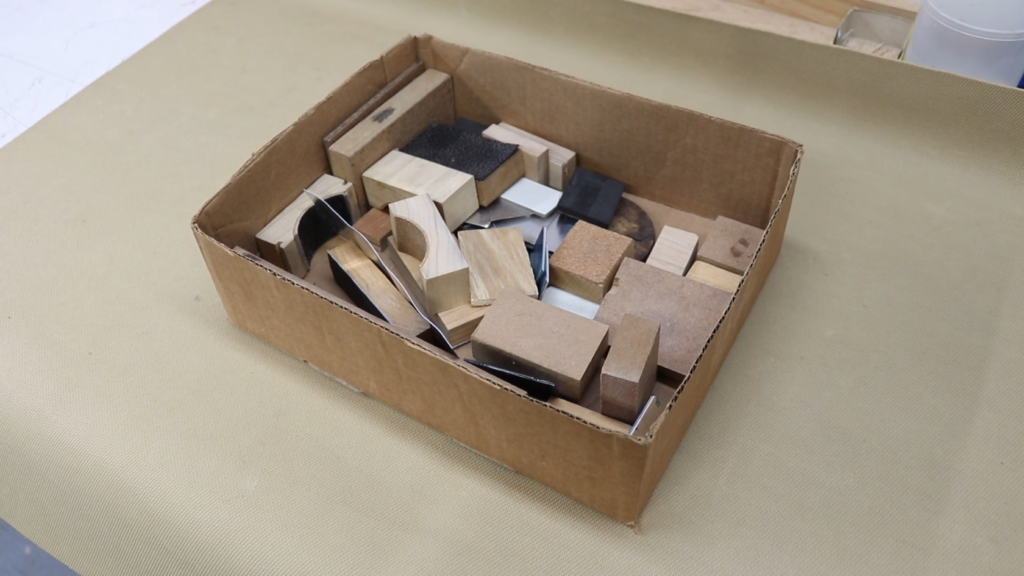
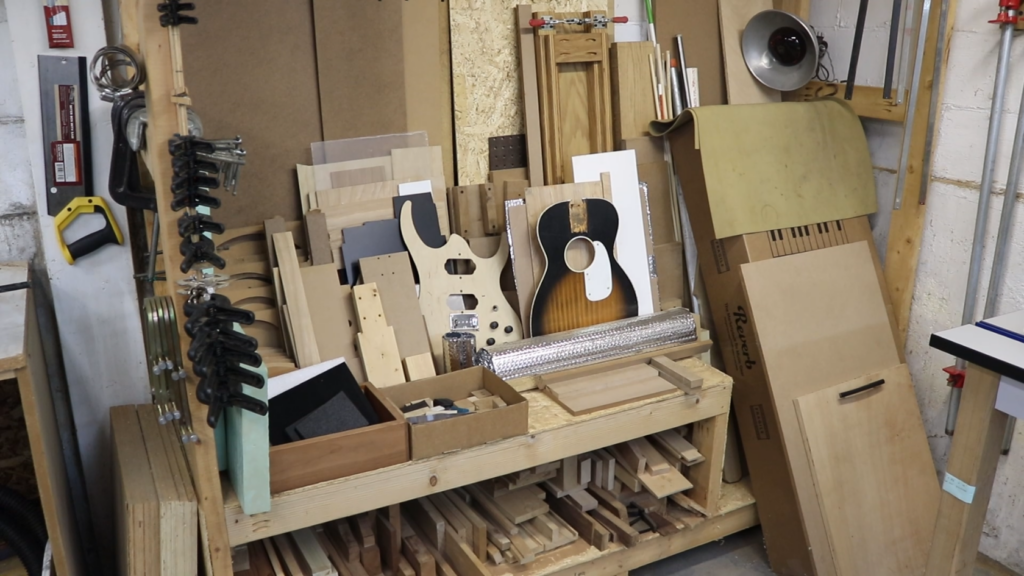
Additionally, pieces of scrap metal are useful. Below is a breadboard platform that I made using metal scraps, MDF, and plywood that I had leftover. You can learn more about breadboarding and guitar pedal circuits from my previous blog post on the topic.
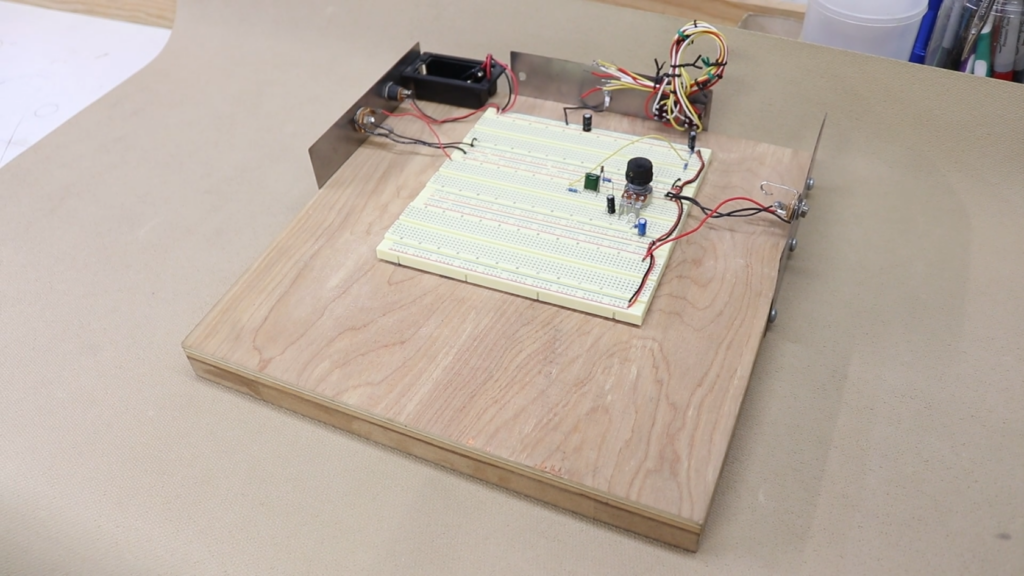
#7 – Cabinets – One thing that I’ve learned over time is that regardless of how big or how small your guitar shop is, you will be limited by the amount of space you have. You’re going to want to maximize this space because of the volume of tools that you’ll need to do this trade. A great way to do this is to hang cabinets. If you were to buy cabinets or even make your own, this can get expensive quite quickly. One thing I would recommend is to keep an eye out for anyone getting rid of some old cabinets. The four examples below were being thrown away, but that I managed to grab and reuse. I have two of them near my bench which hold cordless drills, power supplies, guitar tuners, and miscellaneous supplies. I also have two others which came with dividers installed. These were useful for separating power tools like routers, saws, and sanders.
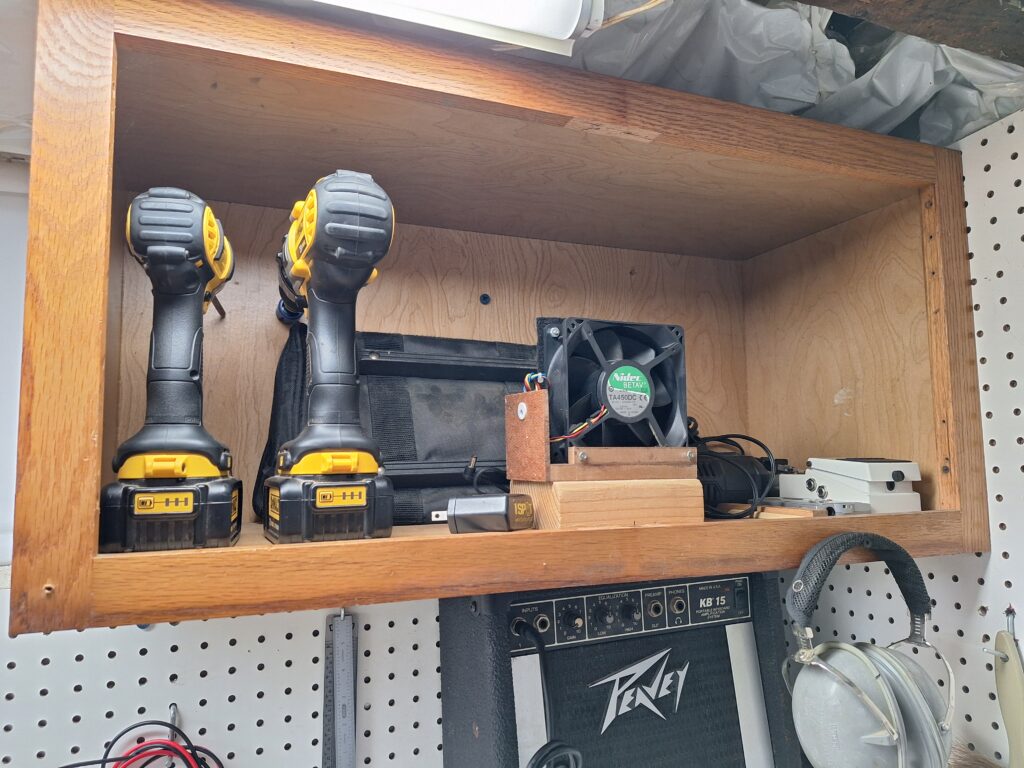
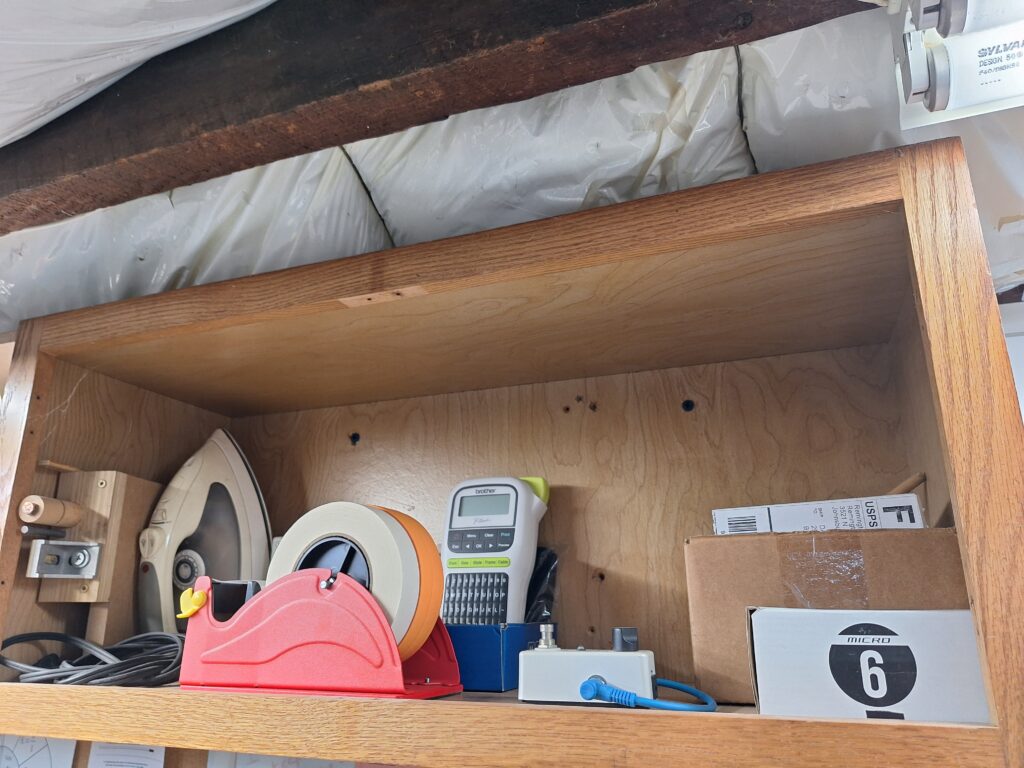
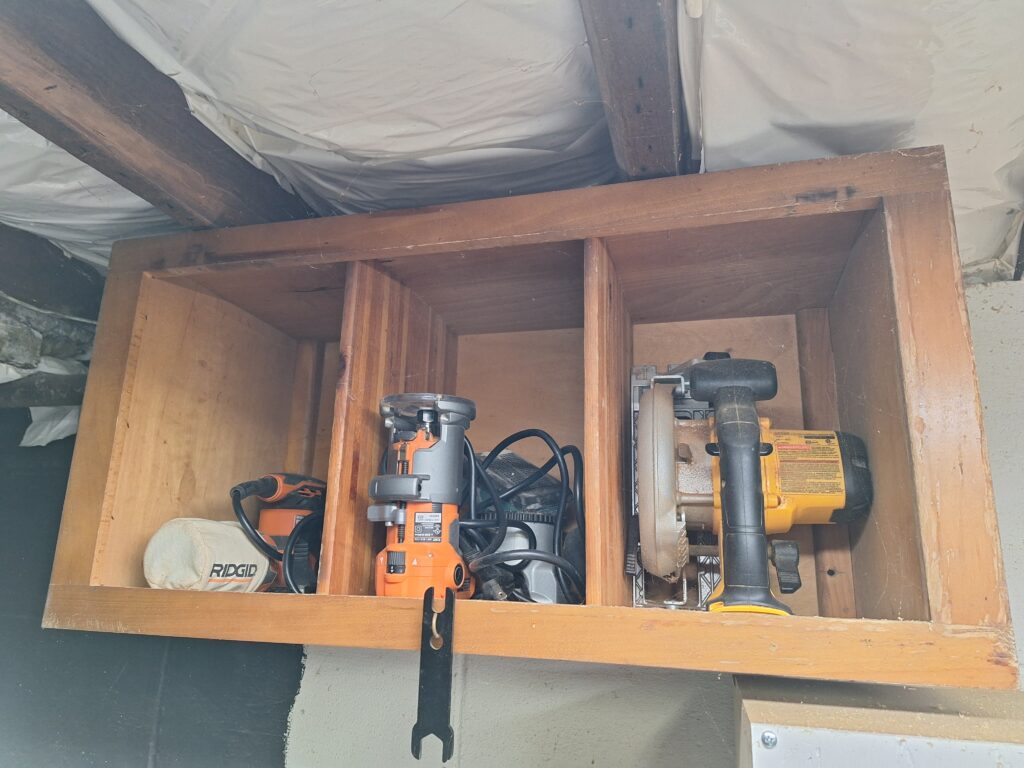
#8 – Fabrics – One thing that’s always good to have on hand is a variety of fabrics. I like to use towels to clean off work surfaces and any spills that happen. You can also cut them up and place them over control cavities when doing soldering. This will protect the finish from any stray solder that may splatter. In addition, I like to use t-shirt material when applying fretboard oil, or use it as a backing when spraying liquids onto parts. It’s also useful to have a variety of fabrics, including leather or faux leather, if you want to add a backing to wooden blocks.
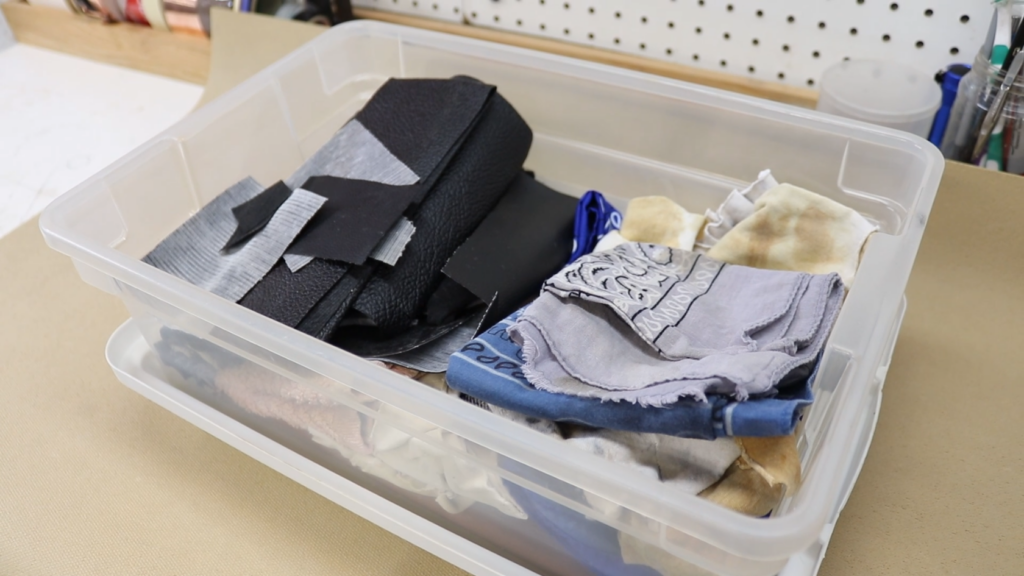
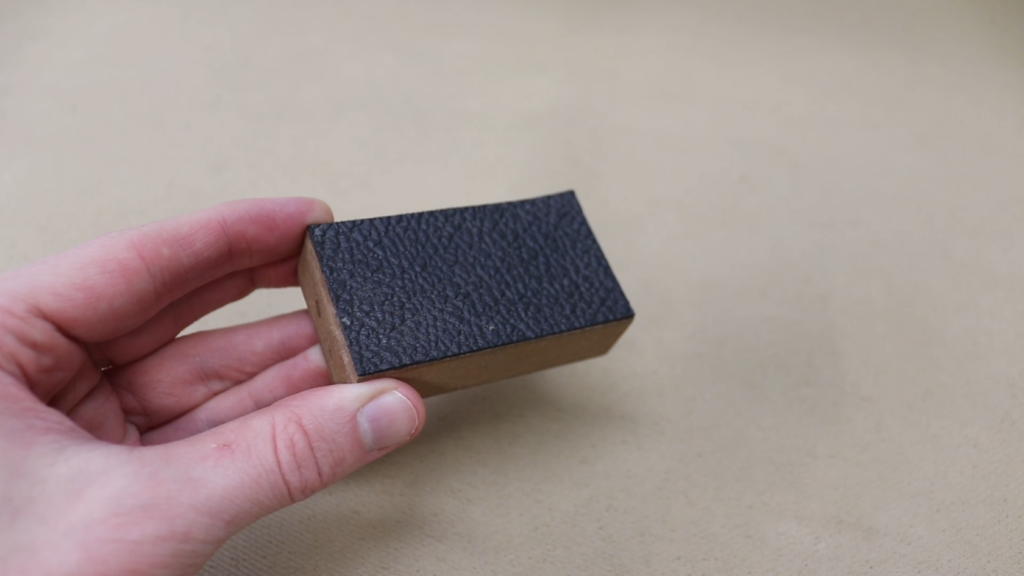
#9 – Flooring – When I first got started doing luthiery, I noticed that my feet would get sore from standing on hard surfaces for extended periods of time. I found a good solution which is using this foam flooring. I recently upgraded to the black pieces, but I used these green pieces that I took from the garbage for many years. I still keep a few of these around in case I need them again, and I do use them from time to time.
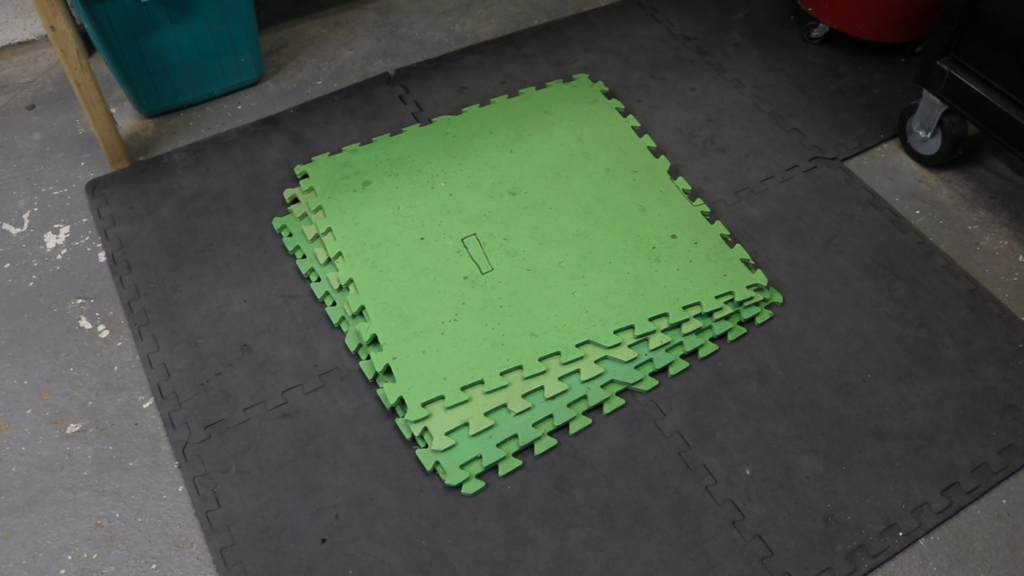
Another use for flooring materials are old pieces of carpet. I placed these under guitars when I worked on them and did so for many years. More recently, I’ve been preferring to use tan non-slip rubber router mats. Even so, if I have multiple guitars in the woodshop at one time, it’s nice to have a good soft surface to place things on.
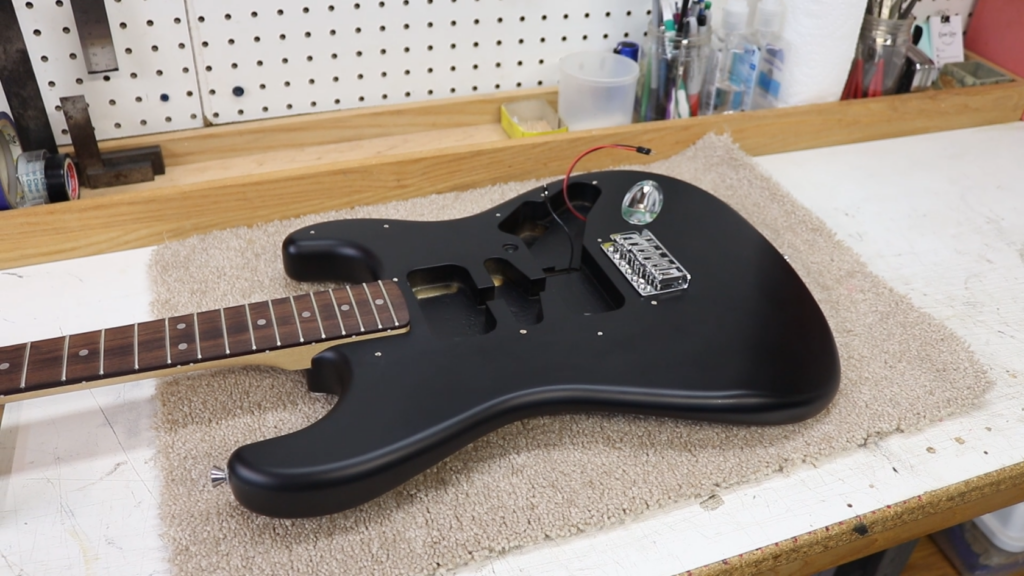
#10 – Stationery – While I do buy stationery supplies from time to time, a lot of what I have was just floating around the house. I’ve found that businesses will often give out free pens or pencils, and instead of recycling used paper, I keep it around the shop in case I need to write something down quickly or make rough sketches. I also have a lot of different colored markers which can be helpful when trying to figure out wiring diagrams. I would suggest getting a small case and throw extra supplies in it when these things come your way.
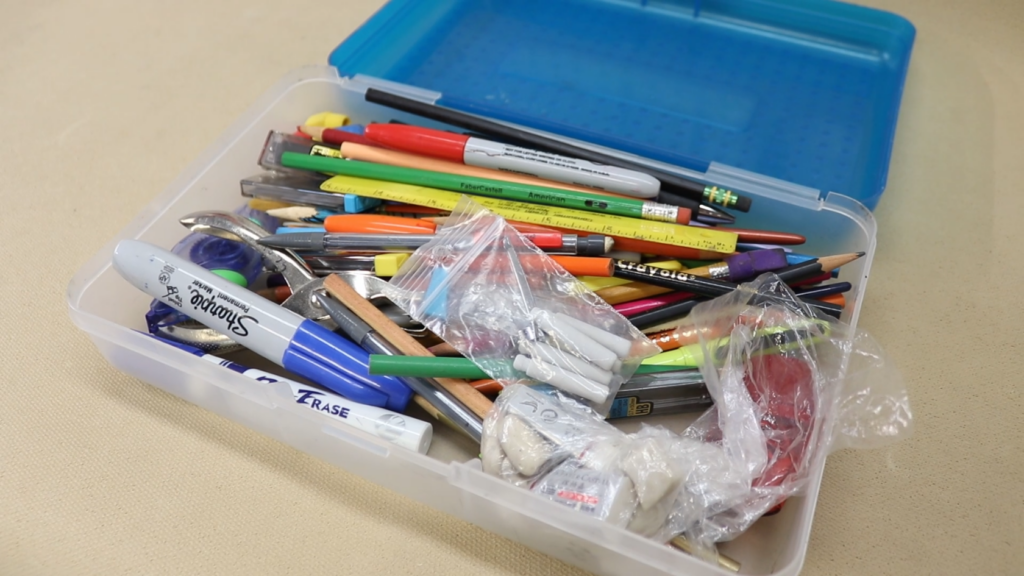
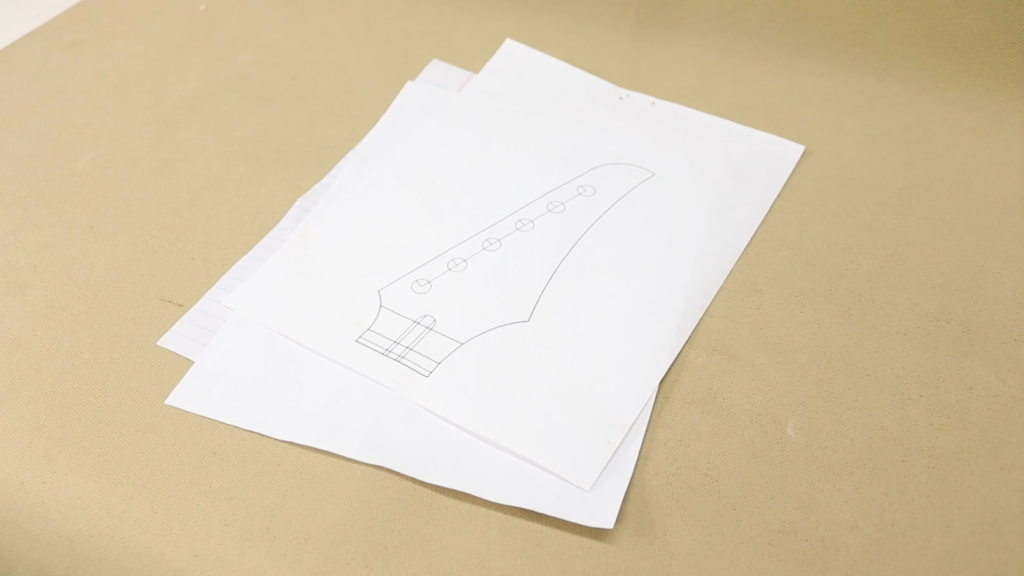
Anyway, that’s it for now! If you’re in Broome County N.Y. or the surrounding areas and need guitar repairs, feel free to contact me here on my website by following this link to my Contact page where you can call me, email me or ask me questions. Thank you!
-David